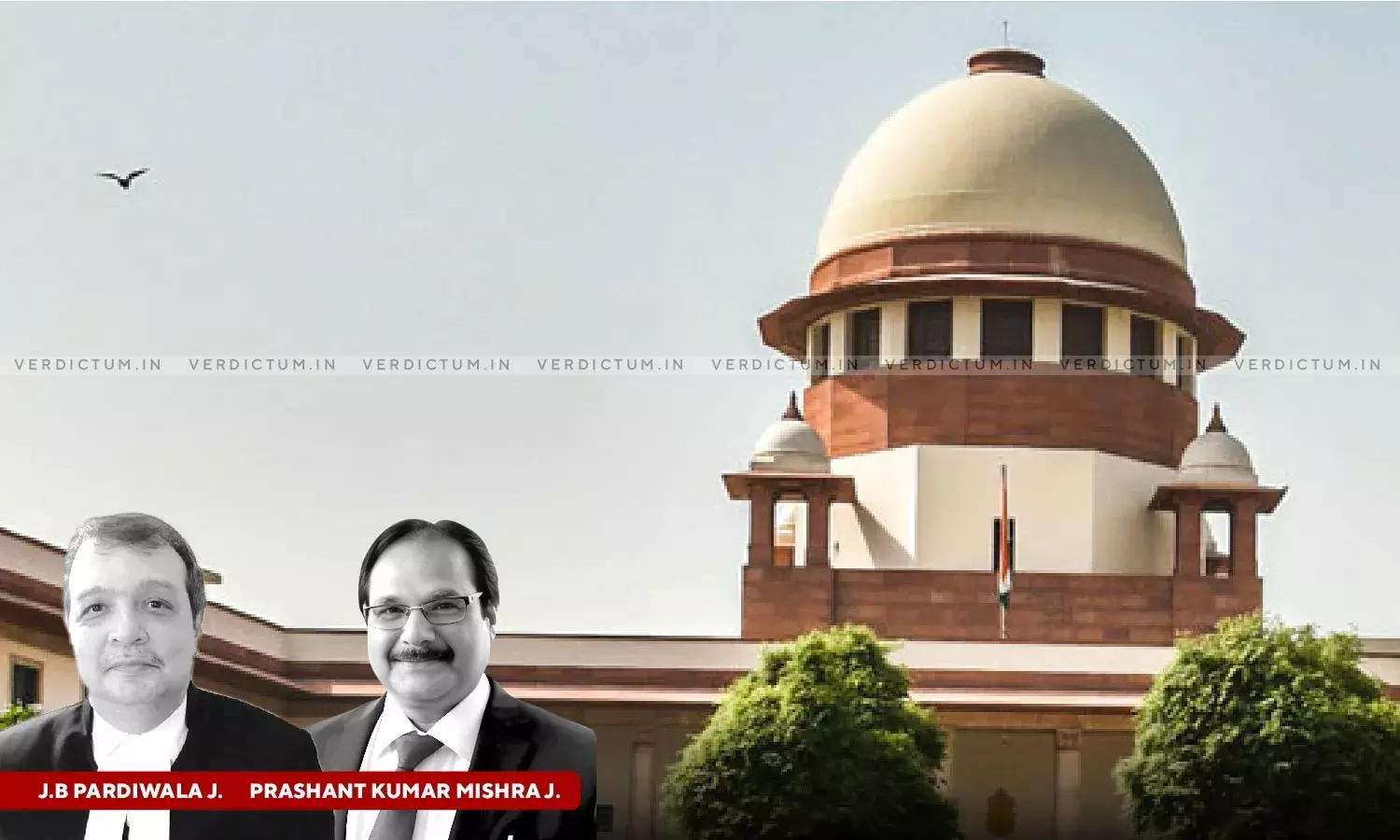Person Summoned U/s. 69 Of CGST Act Cannot Seek Anticipatory Bail U/s. 438 CrPC, Only Remedy Is Under Article 226- SC

The Supreme Court has held that if a person is summoned under Section 69 of the Central Goods and Services Tax Act, 2017 (CGST Act), then the provisions of Section 438 of the Criminal Procedure Code (Cr.PC.) cannot be invoked and hence, the only way to seek protection against the pre-trial arrest is Article 226 of the Constitution.
The two-Judge Bench of Justice J.B. Pardiwala and Justice Prashant Kumar Mishra observed, “… the position of law is that if any person is summoned under Section 69 of the CGST Act, 2017 for the purpose of recording of his statement, the provisions of Section 438 of Criminal Procedure Code, 1908 cannot be invoked. We say so as no First Information Report gets registered before the power of arrest under Section 69(1) of the CGST Act, 2017 is invoked and in such circumstances, the person summoned cannot invoke Section 438 of the Code of Criminal Procedure for anticipatory bail. The only way a person summoned can seek protection against the pre-trial arrest is to invoke the jurisdiction of the High Court under Article 226 of the Constitution of India.”
The Bench held this while dealing with two appeals filed by the State of Gujarat against the decision of the High Court.
Advocate Kanu Agarwal represented the appellant while ASG K.M. Nataraj and Advocate R.P. Gupta represented the respondents.
Factual Background -
The summons came to be issued to the respondents under Section 145 of the Central Excise 2 Act, 1944 as made applicable to the service tax vide Section 83 of the Finance Act, 1994 and Section 70 of the CGST Act calling upon them to remain present for the purpose of interrogation in connection with an inquiry against one M/s. Iyer Enterprise Mundra Kutch. The authority concerned wanted to interrogate the respondents in regard to the alleged evasion of Goods and Service Tax Liability/Contravention of the Provision of the Finance Act 1994 and CGST Act.
Upon receipt of the summons, the respondents apprehended arrest at the end of the concerned officials of the Department. In such circumstances as referred to above, two writ applications came to be filed before the High Court. Both the writ applications came to be disposed of by a common order. The State of Gujarat being dissatisfied with such an order passed by the High Court was therefore before the Apex Court.
The Supreme Court in the above context of the case noted, “What the respondents sought by filing two criminal applications under Article 226 of the Constitution before the High Court was the direction to the appellant herein not to arrest them in exercise of the power conferred by Section 69(1) of the GST Act, 2017. This, in essence, is key to prayer for anticipatory bail. However, as we have explained aforesaid, at the stage of summons, the person summoned cannot invoke Section 438 of the Code of Criminal Procedure.”
The Court said that it is a well-settled position of law that the power to arrest a person by an empowered authority under the GST Act could be termed as statutory in character and ordinarily the writ court should not interfere with the exercise of such power.
“We are not convinced with the manner in which the High Court has disposed of both the writ applications filed by the respondents. It was expected of the respondents to honour the summons and appear before the authority for the purpose of interrogation”, also said the Court.
The Court, however, gave one more opportunity to both respondents to appear before the authorities for the purpose of recording their statements.
“If the respondents fail to appear, then it shall be open for the authority concerned to proceed further in accordance with law”, clarified the Court.
Accordingly, the Court allowed the appeals and set aside the order of the High Court.
Cause Title- The State of Gujarat v. Choodamani Parmeshwaran Iyer & Anr.


